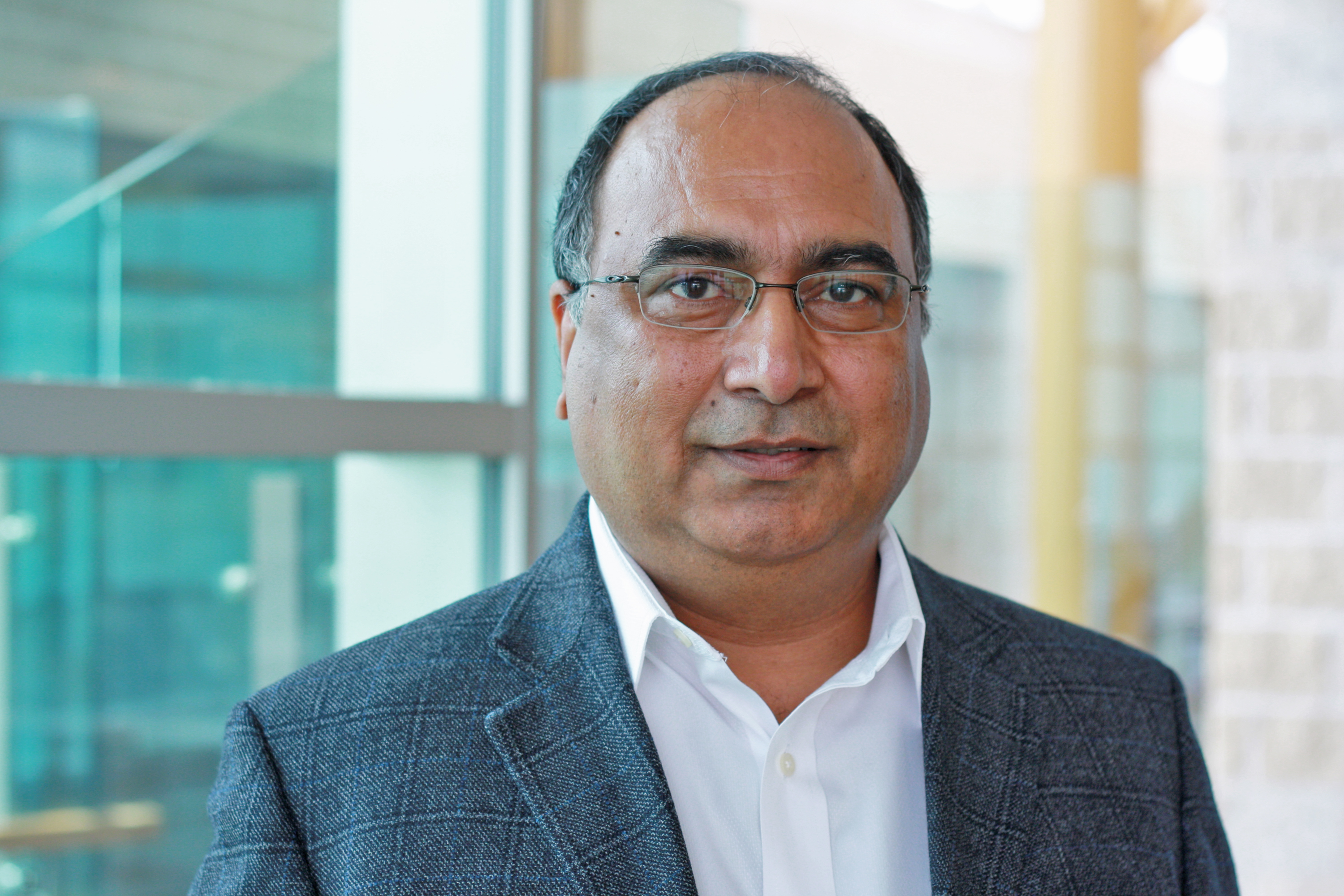Meet Dr. Amarjit Chahal, the Health Research Institute’s Manager of Business Development
November 2nd, 2018 by Marcello Bernardo
Dr. Amarjit Chahal joined the Health Research Institute in September 2016 as the Manager of Business Development.
In his role, Dr. Chahal is responsible for identifying and pursuing business development opportunities that are in alignment with the Health Research Institute’s strategic plan. This includes patenting and the commercialization of inventions.
Dr. Chahal’s background highlights a wealth of experience.
After obtaining a doctoral degree in an Inter-Departmental Program in Genetics from the University of Guelph and completing post-doctoral fellowship training in genetic disorders at the Children’s Hospital in Charleston, South Carolina, Dr. Chahal became the assistant laboratory director at the National Legal Laboratories in East Lansing, Michigan which provided DNA testing services across the United States.
Dr. Chahal eventually returned to Canada to work with Vita-Tech Canada Inc. as the director of the DNA Diagnostics Division, and later as a laboratory director and part-owner of Molecular World Inc. in Thunder Bay. He then transferred with Molecular World Inc. to Laval, Quebec where his company became a part of the Laboratory Corporation of America (listed on the S&P 500) after a couple of acquisitions by Warnex Inc. and Dyancare medical laboratories, respectively.
Besides being involved in the technical side of criminal and civil DNA cases performed by these private companies, Dr. Chahal was also responsible for the business development and commercialization. It is the latter experience that brought him back to Thunder Bay, a place he considers to be his hometown, to join the Health Research Institute.
In his role at the Health Research Institute, Dr. Chahal works closely with several prominent partners and stakeholders.
Working with MaRS Innovation, an organization that specializes in early-stage seed investing for companies and technology emerging from its 15 members (including the Health Research Institute) Dr. Chahal is helping with the patenting and commercialization of the Health Research Institute’s innovations.
Dr. Chahal is a member of the Innovation Broker Task Force of the Council of Academic Hospitals of Ontario (CAHO), where he reviews multiple proposals from industry for potential validation studies at the Health Research Institute. Most of these proposals include the validation studies of digital health technologies.
“Innovative digital health technologies have great potential to help patients and families across Northwestern Ontario overcome our region’s unique barriers to health care,” said Dr. Chahal.
Dr. Chahal is also identifying the source of funding for proposed validation studies and connecting industry with appropriate clinical champions at the Thunder Bay Regional Health Sciences Centre (the Hospital). For example, a non-profit organization in Toronto, along with the Hospital and industry partners across Canada, has applied for a federal Strategic Innovation Fund. Proposals coming from the Innovation Broker program are helping the Health Research Institute to connect with industry for potential partnerships. He has also helped revise the business plans for the Cyclotron and Clinical Trials operations of the Health Research Institute based on current market analyses.
While the Health Research Institute already has a reputation for cutting-edge research in medical imaging and the creation of spin-off companies, Dr. Chahal wants people to know more about the clinical trials side.
“It is important for people to know that we run regulated clinical trials for drug and medical devices, “ said Dr. Chahal. “The Clinical Trials team at the Health Research Institute and our Hospital works closely with physician investigators, industry and academic partners on clinical research studies. The team also helps facilitate locally developed investigator initiated projects. The availability of clinical trials locally provides an opportunity to patients and non-patient volunteers participate in clinical research. This allows patients to receive treatment that may not otherwise be available.”
